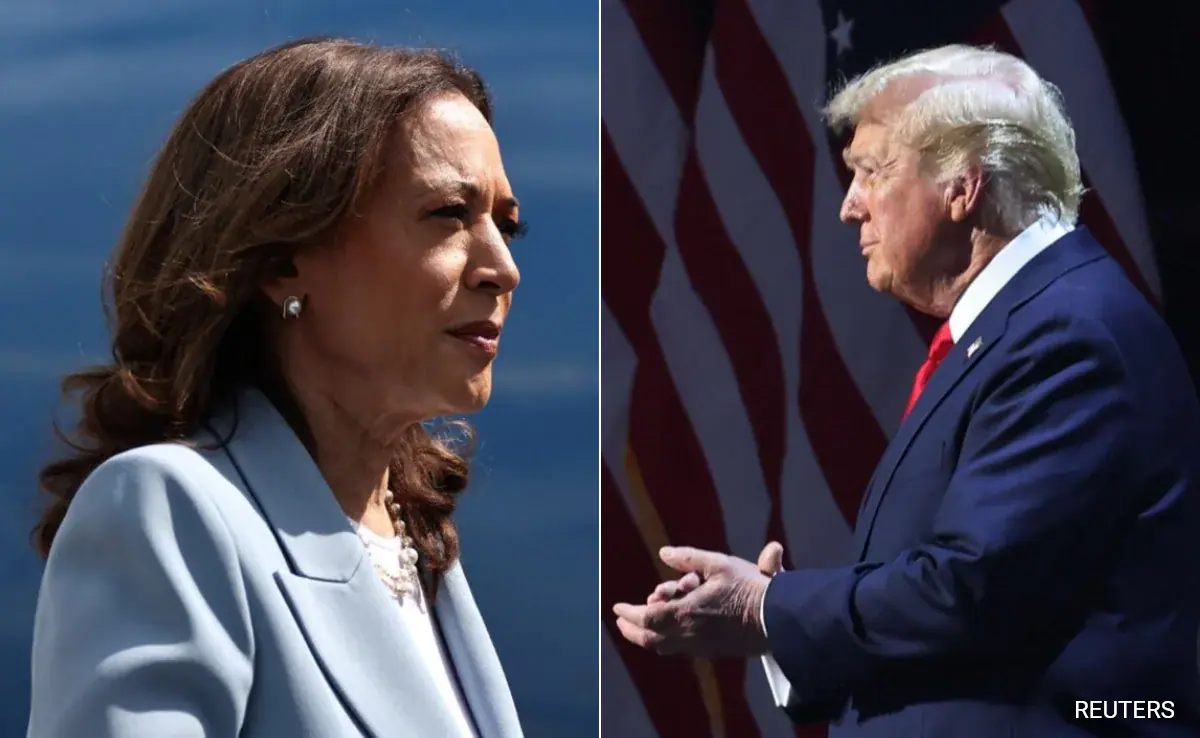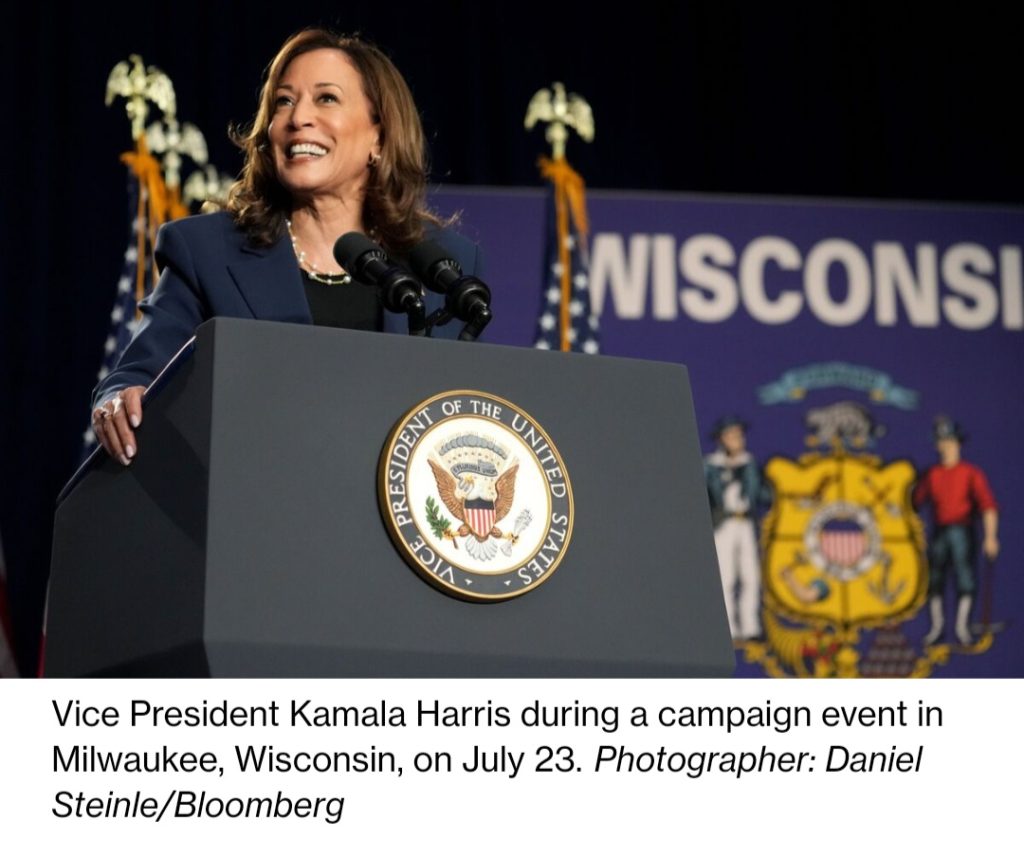Overall, Harris leads Trump by 1 point among swing states

Above expectations, after two weeks of being in the race, Democratic candidate Kamala Harris has slightly improved in the polls, but certainly it might not be enough to win the White House.
According to a Bloomberg/Morning Consult poll, conducted between July 24th and July 28th, Harris is ahead of the Republican candidate Donald Trump in five of the seven battleground states that will decide this coming November 5th election.
In Michigan, Harris leads by four points (53% to 42%), in Pennsylvania Trump is ahead by four (50% to 46%), while in Wisconsin Harris exceeds by two points (49% to 47%), and in Georgia the candidates are tied. In the State of Arizona, Harris keeps leading by two points (49% to 47%), in North Carolina the Republican candidate is ahead by two (48% to 46%), while in Nevada Harris is on top by two points (47% to 45%).
These are definitely better numbers than the ones President Joe Biden had, before he dropped out of the race on July 21st.
But overall, among all the swing states, Harris leads Trump only by one point (48% to 47%), a change of two points lead the Republican had over Biden. Harris’s recovery definitely doesn’t guarantee that the Democratic party will win the US Election, given the fact that we are still three months ahead.
“I think it’s a wide-open race, but Trump has the advantage right now,” said David Axelord, former chief strategist for Barack Obama’s presidential campaigns.

Harris needs to do better than this and try to be more popular than what she has been, so far. The Democratic candidate has struggled with a sort of near invisibility as Vice President, leaving some of her own party members doubtful about her capability to win and fullfill the new role in leading the country.
Even though she was the most logical alternative to President Biden’s withdrawal, most recent surveys by CNN-SRSS national poll show that if Biden was only viewed favorable by 34% of register voters (Trump was at 39%), Harris has only reached a low 29%.
“The very nature of the vice president presents a challenge in terms of connection with the public,” stated Chris Borick, director of the Muhlenberg Institute of Public Opinion in Pennsyvania. “When you add in the intersection of Harris’s gender identity, multiracial background and California roots, it seems a barrier to broad public acceptance is created.”
For her to become President, according to what Bernie Sanders, Senator from Vermont, stated, “she is going to have to be talking about issues that impact 60 percent of Americans working people who are living on paycheck to paycheck.”





